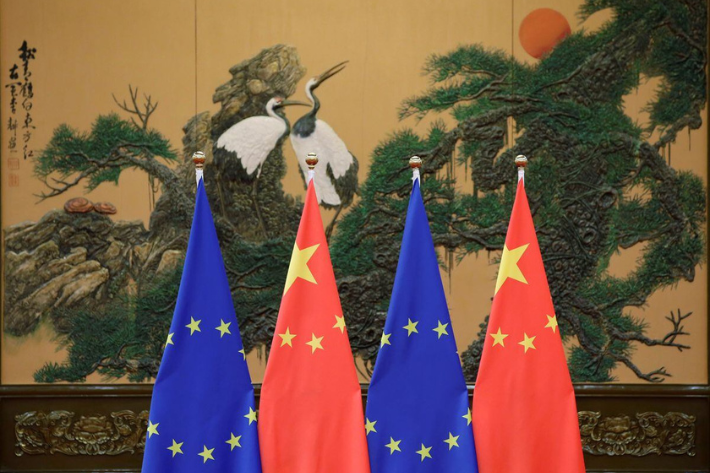A top European Union official has said the bloc will use all necessary trade mechanisms to protect its businesses, after launching an investigation into a Chinese firm it suspected as benefitting from potential state subsidies
“It is a very important signal to the business community in Europe and outside of Europe, that we’re absolutely willing to use our tools to make sure that we get fair competition,” EU commissioner Margrethe Vestager said on the sidelines of the Munich Security Conference, according to a report by the South China Morning Post.
Vestager made her comments in reference to a probe EU’s antitrust regulators opened on Friday against potential Chinese subsidies granted to train maker CRRC Qingdao Sifang Locomotive.
Also on AF: China’s Cheap Solar Panels Killing Europe’s Solar Manufacturers
The investigation will be the first to be undertaken by the bloc’s new EU Foreign Subsidies Regulation (FSR).
It follows the rail-maker’s disclosure to the European Commission — as required by the new law — that it will take part in a $657 million Bulgarian tender for electric trains.
An EU executive said there were “sufficient indications” that the train-maker had been “granted a foreign subsidy that distorts the internal market”.
The company is a subsidiary of Chinese state-owned CRRC Corporation. EU will probe whether CRRC’s contribution to the firm is a subsidy that either gives it a direct or indirect selective benefit, and if that would allow it to submit an unduly advantageous tender.
Referring to the probe, Vestager said it showed that the EU was willing to use the new FSR law.
“Now the first case, when it comes to public tendering, is a rail case, but it could have been other sectors as well,” she said, according to the SCMP report.
‘Tools aimed at unfair competition’
The EU is, in fact, already probing inflows into the region from multiple Chinese industries.
In September last year, the European Commission launched a probe to determine whether it needed to impose punitive tariffs on Chinese EV-makers that it suspected of benefiting from state subsidies. The move was aimed at protecting European carmakers from an ‘invasion’ of cheaper Chinese EVs.
The ongoing probe is the EU’s highest profile case against China since a decade ago, when a similar investigation into Chinese solar panels narrowly avoided a trade war.
View this post on Instagram
The bloc is also reported to be mulling similar probes into imports of wind turbines and steel from China.
Meanwhile, the region’s leaders are also pursuing a “de-risking” policy, aimed at reducing the EU’s dependance on imports from China, especially those of critical raw materials.
Even so, in Munich on Saturday, EU’s Vestager denied the trade ‘tools’ she referred to were aimed specifically at managing competition from China.
“I think you can’t say that we’re stepping up against China. We’re stepping up against what we see as unfair,” Vestager was quoted as saying by the SCMP.
‘China decoupling historical mistake’
Responding to the EU’s probe into CRRC Qingdao Sifang Locomotive, the China Chamber of Commerce to the EU said it had “deep concerns” with the investigation.
The group said the probe “sent a “discouraging message” to Chinese investors and hit their confidence in continuing to expand in Europe,” according to state-backed Global Times.
Meanwhile, speaking at the Munich Security Conference, Chinese foreign minister Wang Yi warned the West against potentially decoupling from China.
“Whoever tries de-sinicisation in the name of de-risking would be making a historical mistake,” Wang said in a speech on Saturday.
During a meeting with US Secretary of State Antony Blinken at the conference on Friday, the Chinese foreign minister also stressed that “making ‘de-risking’ into ‘de-China’, and seeking ‘decoupling from China'” will only backfire on the US itself”.
- Vishakha Saxena, with Reuters
Also read:
EU Investigators in China to Probe EV-Makers BYD, Geely, SAIC
EU Leaders Meet Xi in Beijing Amid Concern on Trade Imbalance
EU’s China Steel Subsidy Review ‘is Against Global Trade Norms’
Beijing ‘Very Dissatisfied’ at EU Probe Into China’s EV Subsidies
EU Leaders Fear Dependency on Chinese Batteries, Fuel Cells
Raimondo Says Chinese EVs Are a National Security Risk For US, EU
China-Western Tensions Reshaping Global Business
German Carmakers Fear EU’s China EV Probe: Minister – Politico























